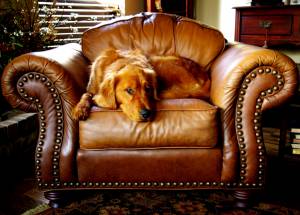
When you observe your dog twitching in his sleep, it’s natural to feel a bit worried. But rest assured, in most cases, this behavior is completely normal. Dogs, like humans, go through different sleep stages, including the rapid eye movement (REM) phase, where dreaming occurs. During this phase, dogs may exhibit twitching, paddling, or even vocalizing as they act out their dreams. These movements are often a reflection of their dream activities, and they usually don’t indicate any health problems. Just imagine them chasing a squirrel or playing at the park in their dreams!
It’s important to note that not all twitching in a dog’s sleep is related to dreaming. Sometimes, twitching can be a result of physical discomfort or even health issues. Just as humans may twitch due to muscle spasms or discomfort, dogs can experience similar sensations during sleep. It’s crucial to monitor the frequency and intensity of these movements. If your dog’s twitching seems excessive, violent, or is accompanied by other concerning symptoms, it’s best to consult with your veterinarian to rule out any underlying health issues.
Age can also play a role in your dog’s sleep behaviors. Puppies, for instance, are known to experience more intense and frequent twitching during sleep compared to adult dogs. This is because their developing brains are highly active during sleep, resulting in more pronounced dream movements. As dogs mature, these movements may lessen in intensity and frequency. However, if you notice any sudden changes in your dog’s sleep patterns, it’s always wise to seek professional advice to ensure everything is alright.
As pet owners, our dogs’ well-being is paramount. While it’s normal for dogs to twitch during sleep, it’s essential to remain observant. Regular check-ups with your veterinarian are crucial in ensuring your pet’s health and happiness. If you notice any drastic changes in your dog’s sleep behavior, don’t hesitate to reach out for professional advice. Remember, a little twitching during sleep is often just a sign of an active dream life, and with the right care and attention, your loyal companion will continue to enjoy restful and peaceful slumber.






